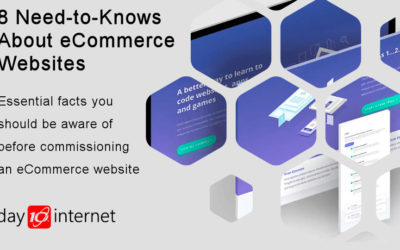In this article explains I explain why maintenance and security are critical for your website. It explains our approach to addressing this problem and the reasons why you need to have a website protection plan for your website.
Website hacks are happening right and left these days. It doesn’t matter what kind of website you have; whether you’re a large corporation, or a small business, or a community or charity website, or whether or not you take online payments. It does not matter. Website hacks are happening to all kinds of sites.
There are different types of website hacks. Some are like website spiders that crawl over your site’s code looking for ways in to inject malicious code that can do harm to your website. Other hacks are where someone breaks into your site, modifies it or takes it down completely. These can be very devastating to your website and business.
The worst case scenario is where an infected website gets blacklisted by Google. Google displays a warning on your site telling people that the site is unsafe. If that happens to your website, it’s a great way to lose traffic and ultimately to lose business because people are afraid to visit your website. If that happens, sometimes it can take weeks or months to remedy because we have to investigate, find the cause of the hack and then talk to Google to get the blacklisting removed.
As you can see, it is more important than ever to have your website protected.
We have created a four-part approach to security and maintenance. All our hosting plans plans are designed around this approach.
1. Maintenance
This includes us updating WordPress, updating the Theme, updating all plugins, and ensuring that all the tools are up to date. This is the best way to avoid a hack because as soon as one of these components becomes out of date, the site is vulnerable to someone finding a way in and causing damage.
We will also clean out the site on a daily basis, cleaning out spam comments, clean out the database and maintain some other technical-geeky stuff that will help your site perform better.
2. Firewall
Think of this as a security net around your website, protecting it from hackers, spammers and bots, and things like this. So it’s basically something to catch them and only let good computers and real traffic come through.
3. Backing up the website
This is wildly important because, no matter how cautious we are, we want to make sure that we have a fresh back up, ready to install at a moment’s notice god forbid something should happen. So we take weekly or monthly backups of your website depending on how frequently you use it, and we can restore it at a minutes notice. So, god forbid something should happen, we can restore it almost immediately, wipe out the bad hack and you’re good to go.
4. Reporting
Finally, we offer a monthly report on the plan to all our client where you see, not only what we did to maintain your website, but we give you a Google Analytics report of your site traffic, so you can see page views, you can see search terms that people use to get to your site.
Also, if you want, we can show you how to look at your Google Analytics in more detail to see what people are doing when they hit your website. You can see what search terms they use to get to certain parts of the website. You can see demographics, locations. We will be more than happy to set you up with that so you can utilize it to make changes to your site moving forward.
These are the four main parts of our security and maintenance plan. It’s very important, when you have a site that’s live on the internet, that you have it protected and secured and maintained.
A website hack can be devastating to your business.






